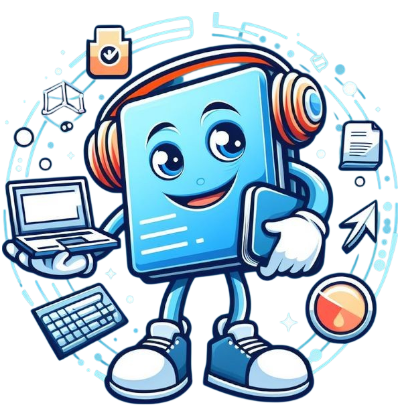Practical Applications of AI in Life
Artificial Intelligence (AI) has evolved into a cornerstone of modern innovation, reshaping how we live, work, and interact. Its practical applications span various sectors, from education and healthcare to transportation and entertainment. Below, we delve into these transformative uses, detailing how AI enhances efficiency, personalizes experiences, and drives technological advancements.
Revolutionizing Education with AI
AI has significantly impacted the education sector, creating tools that streamline teaching and learning processes. Automated grading systems simplify the workload of educators by quickly evaluating assessments, especially multiple-choice exams. This efficiency allows teachers to dedicate more time to personalized student engagement.

Platforms like Cram101 harness AI to summarize complex textbooks, generating study guides that include chapter overviews, practice quizzes, and flashcards. This tailored approach facilitates easier comprehension and retention of information.
Further, platforms such as Netex Learning empower educators to design digital curriculums enriched with multimedia content. These tools integrate video, audio, and interactive features, ensuring a dynamic and engaging learning environment. Meanwhile, AI-powered virtual assistants act as personalized tutors, offering guidance, answering queries, and adapting to individual learning speeds and preferences.

Enhancing Healthcare Through AI
AI’s role in healthcare is transformative, improving both diagnosis and treatment outcomes. AI-enabled robots assist in surgeries, providing precision that minimizes complications and reduces recovery times. For instance, robotic surgical systems analyze medical data in real time to optimize surgical procedures.

Virtual nurse assistants, available 24/7, revolutionize patient care by monitoring health conditions, answering questions, and delivering tailored medical advice. These assistants alleviate the strain on healthcare facilities while offering consistent support to patients.
AI-powered diagnostic tools have shown exceptional promise. For example, AI algorithms can detect skin cancer with accuracy levels matching that of seasoned dermatologists. Similarly, IBM’s Watson leverages big data to aid doctors in creating personalized treatment plans, ensuring a higher degree of precision and care.
Personalized Assistance with Virtual Assistants
Virtual assistants like Siri and Alexa have become indispensable in modern households and workplaces. By leveraging AI, these assistants handle tasks ranging from setting reminders to managing schedules. They continuously learn user preferences, adapting to habits and anticipating needs. For example, virtual assistants can analyze weather conditions and traffic patterns to suggest optimal meeting times and travel routes.
Moreover, advancements in natural language processing enable these tools to understand and predict emotional cues, delivering responses that feel intuitive and human-like. This enhanced interaction improves user satisfaction and drives widespread adoption.
Smart Homes: The Future of Living
AI has redefined home automation, turning ordinary spaces into smart homes equipped with interconnected devices. Integrating with the Internet of Things (IoT), AI systems learn user routines, offering customized solutions for daily activities.

For instance, a smart home setup can automatically adjust lighting, temperature, and security settings based on user preferences. AI-powered coffee machines prepare beverages as users wake up, while refrigerators track inventory and suggest recipes. These innovations not only enhance convenience but also promote energy efficiency by optimizing resource use.
The Rise of Autonomous Vehicles
One of AI’s most groundbreaking applications is in the realm of self-driving cars. Autonomous vehicles utilize AI to analyze traffic data, detect obstacles, and predict pedestrian movements, ensuring safer travel. This technology promises to drastically reduce road accidents and optimize fuel consumption.

Future projections indicate that by 2030, millions of AI-enabled vehicles will seamlessly communicate through Wi-Fi networks, selecting the most efficient routes and avoiding congestion. These advancements herald a revolution in transportation, offering cost-effective and environmentally friendly solutions.
Gaming: Immersive Experiences Powered by AI
AI has revolutionized the gaming industry by introducing intelligent non-player characters (NPCs) that adapt to player actions. Unlike scripted interactions, AI-powered NPCs respond dynamically, creating more realistic and engaging gameplay.
Game developers employ AI algorithms to enhance storylines, simulate complex environments, and deliver tailored experiences. The result is an industry driven by innovation, catering to both casual gamers and enthusiasts seeking deeper immersion.
AI in Retail: Smarter Shopping Experiences
The retail sector leverages AI to refine operations and improve customer experiences. For instance, dynamic pricing models adjust product costs in real-time based on market demand and consumer behavior, ensuring competitiveness and profitability.

E-commerce platforms like Amazon use predictive analytics to anticipate customer needs, suggesting products before users even search for them. These personalized recommendations, powered by AI, drive sales and enhance customer loyalty.
Healthcare Beyond Hospitals: Preventive and Remote Care
Beyond diagnostics and surgeries, AI empowers individuals with tools for preventive care. Wearable devices equipped with AI monitor vital signs, detect irregularities, and alert users to potential health issues. This proactive approach reduces the burden on healthcare systems and promotes healthier lifestyles.
Telemedicine, fueled by AI, ensures that quality healthcare reaches remote areas. AI chatbots assist in preliminary diagnoses and triage, enabling doctors to focus on critical cases.
AI-Powered Decision Making Across Industries
From finance to logistics, AI drives data-driven decision making, enhancing accuracy and efficiency. Financial institutions rely on AI algorithms for fraud detection, investment analysis, and credit risk assessment. In logistics, AI optimizes supply chains, predicts demand fluctuations, and ensures timely deliveries.
AI also aids governments in urban planning, analyzing demographic and infrastructure data to design smarter, more sustainable cities. These applications underscore AI’s versatility and its potential to solve complex global challenges.
Conclusion: AI as an Indispensable Force
Artificial Intelligence is no longer a futuristic concept; it is an integral part of our lives, transforming industries and redefining possibilities. From education and healthcare to transportation and entertainment, AI’s applications are diverse and impactful. As we continue to harness its potential, the benefits of AI will only expand, shaping a smarter, more connected world.









